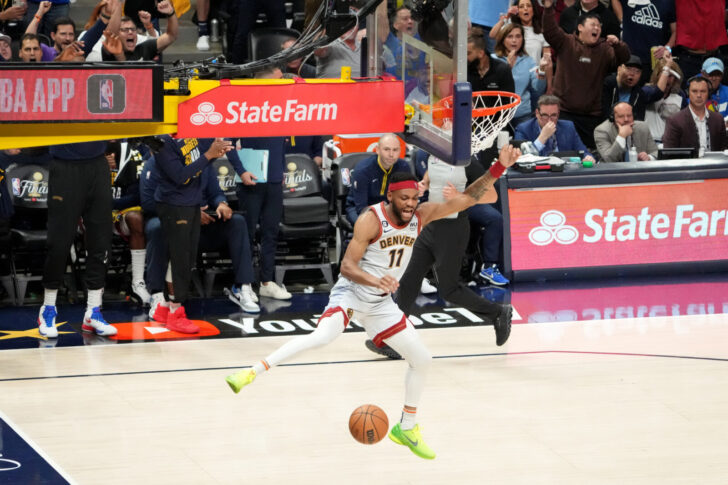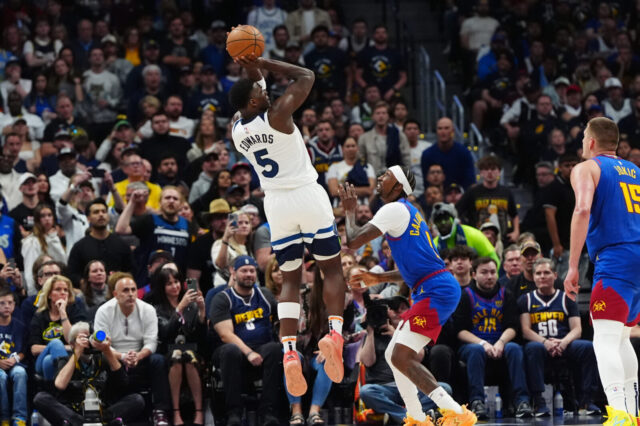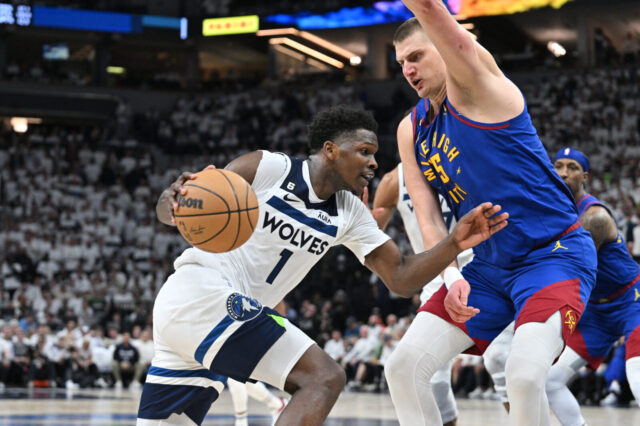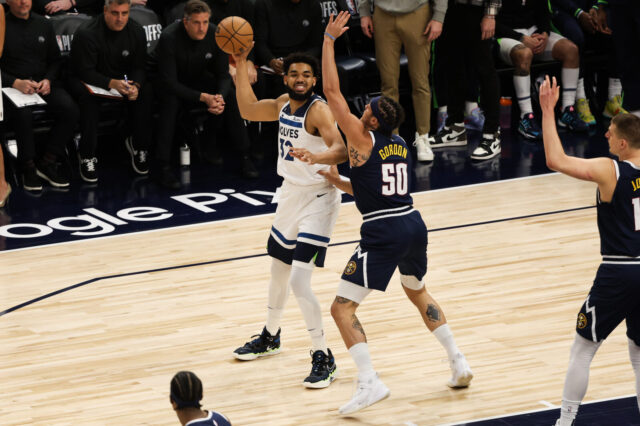According to Sham Charania of The Athletic, Denver Nuggets sixth man Bruce Brown will decline his player option for the 2023-24 season and is set to become an unrestricted free agent.
Denver Nuggets G/F Bruce Brown Jr. is declining his $6.8 million player option for the 2023-24 season and will become a free agent, sources tell @TheAthletic @Stadium. Brown, a key member of the Nuggets title, faces decision of Denver return in free agency versus deal elsewhere.
— Shams Charania (@ShamsCharania) June 21, 2023
The news comes on the deadline of Brown’s player option decision, having waited until the last moment to make the news official.
Brown, 26, will become an unrestricted free agent after the best season of his young career. In a sixth man role with the Nuggets, Brown averaged 11.5 points, 4.1 rebounds, and 3.4 assists in 28.5 minutes per game. His versatility, aggressiveness, and improved outside shooting gave the Nuggets an excellent change-of-pace option in the playoffs. That versatility allowed the Nuggets to mold whatever lineup they needed around Nikola Jokić and Jamal Murray to win their first championship in franchise history.
Brown was signed with the taxpayer mid-level exception during last off-season, what was then considered a bargain of a deal and ended up being one of the most valuable contracts signed in free agency. The TPMLE had an opt out in the second year, allowing Brown to capitalize on what was an excellent year for him and get back on the market.
Still, this isn’t an unexpected outcome, and there remains a path for Brown to stay with the Nuggets long term. As explained in yesterday’s article, Brown can sign a new 1+1 contract with a maximum salary of $7.7 million in his first season, allowing Denver to then make him a larger contract offer next season.
It’s all but assured that Brown will opt out in order to earn more money. The question is: how much money is enough to keep Brown happy in Denver? Due to a salary cap rule called “Bird Rights,” the maximum amount the Nuggets can offer Brown is a 20% raise on the $6.479 million he earned during the 2022-23 season. That means he could make at most $7.8 million from the Nuggets in 2023-24. Other teams can offer much more, beginning with the non-taxpayer mid-level exception that teams like the Sacramento Kings, Dallas Mavericks, or Memphis Grizzlies could have at their disposal. That MLE amount begins at $12.2 million and means that a team could offer over $50 million in guaranteed money to Brown across four years if that’s what he wanted.
That doesn’t even include the cap space teams like the Houston Rockets, San Antonio Spurs, or others that could throw a bag at Brown that exceeds even $50 million in guaranteed money.
So basically, if the Nuggets want to keep Brown, they have to sell him on winning. Brown could sign another one-year deal with an opt out, at which point the Nuggets could offer him that aforementioned four-year deal at mid-level exception money. Unfortunately, if Brown wants to capitalize on his current market, he likely won’t wait around a year for Denver to pay him. For what it’s worth though, Brown told the Denver Post following the championship celebration that money isn’t everything to him and that Denver is “a perfect fit” so maybe there’s a chance he takes less to stay in town.
Brown expressed interest in remaining with the Nuggets for at least another year, and the Nuggets will offer him the maximum they can offer due to CBA rules. That matters in negotiations like this. If there was extra money the Nuggets could be offering Brown that they decided to not offer, it would become a bad faith negotiation. The CBA rules make it clear to Brown and his agency exactly what the Nuggets are allowed to do. If the Nuggets meet those requirements, then Brown may decide to stay for another year and simply forgo the extra money potentially waiting for him on the open market.
Time will tell. Brown and his agency have just under 10 days to determine his market before free agency opens in earnest. If there’s no big contract offer waiting for him, then returning to the championship winning Nuggets may not be such a bad option after all, especially if the Nuggets promise to take care of Brown the following off-season.
If the Nuggets cannot re-sign Brown, they will have the TPMLE (albeit at a reduced salary number) to help replace Brown’s production, as well as a traded player exception generated from the Monte Morris trade that expires on July 6th. After that, it’s minimum contract signings only.



